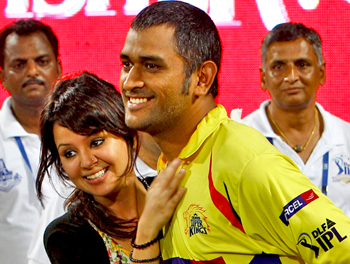May 13: With the Olympics postponed due to the coronavirus, top Japanese fencer Ryo Miyake has swapped his metal mask and foil for a bike and backpack as a Tokyo UberEats deliveryman.
The 29-year-old, who won silver in the team foil at the 2012 London Olympics and was itching to compete in a home Games, says the job keeps him in shape physically and mentally -- and brings in much-needed cash.
"I started this for two reasons -- to save money for travelling (to future competitions) and to keep myself in physical shape," he told AFP.
"I see how much I am earning on the phone, but the number is not just money for me. It's a score to keep me going."
Japanese media have depicted Miyake as a poor amateur struggling to make ends meet but he himself asked for his three corporate sponsorships to be put on hold -- even if that means living off savings.
Like most of the world's top athletes, he is in limbo as the virus forces competitions to be cancelled and plays havoc with training schedules.
"I don't know when I can resume training or when the next tournament will take place. I don't even know if I can keep up my mental condition or motivation for another year," he said.
"No one knows how the qualification process will go. Pretending everything is OK for the competition is simply irresponsible."
In the meantime, he is happy criss-crossing the vast Japanese capital with bike and smartphone, joining a growing legion of Uber delivery staff in demand during the pandemic.
"When I get orders in the hilly Akasaka, Roppongi (downtown) district, it becomes good training," he smiles.
The unprecedented postponement of the Olympics hit Miyake hard, as he was enjoying a purple patch in his career.
After missing out on the Rio 2016 Olympics, Miyake came 13th in last year's World Fencing Championships -- the highest-ranked Japanese fencer at the competition.
The International Olympics Committee has set the new date for the Olympics on July 23, 2021.
But with no vaccine available for the coronavirus that has killed nearly 300,000 worldwide, even that hangs in the balance.
Miyake said the Japanese fencing team heard about the postponement the day after arriving in the United States for one of the final Olympic qualifying events.
With his diary suddenly free of training and competition, he said he spent the month of April agonising over what to do before hitting on the Uber idea.
"Sports and culture inevitably come second when people have to survive a crisis," he said.
"Is the Olympics really needed in the first place? Then what do I live for if not for the sport? That is what I kept thinking."
However, the new and temporary career delivering food in Tokyo has given the fencer a new drive to succeed.
"The most immediate objective for me is to be able to start training smoothly" once the emergency is lifted, he said.
"I need to be ready physically and financially for the moment. That is my biggest mission now."
But not all athletes may cope mentally with surviving another "nerve-wracking" pre-Olympic year, he said.
"It's like finally getting to the end of a 42-kilometre marathon and then being told you have to keep going."
As a child, Miyake practised his attacks on every wall of his house -- and he said his passion for the sport was what was driving him now.
"I love fencing. I want to be able to travel for matches and compete in the Olympics. That is the only reason I am doing this."






Comments
Reagujcie zaskakuje sie nas ekologiczna oczyszczalnia rynsztoków, obejmuje ona nawal atutów,
zawsze najwazniejszym jest tenze, ze pamietamy o centrum
Czyzby iks przezywa taka oczyszczalnie? Schwytal popularna
stronke blagam popatrzcie oraz wypowiedzcie sie
na ostatni punkt Zadajecie
Feel free to surf to my weblog; oczyszczalnie scieków przemyslowych: http://www.szhaihui.com/comment/html/?3074.html
Add new comment